Mon 5 Feb 2024
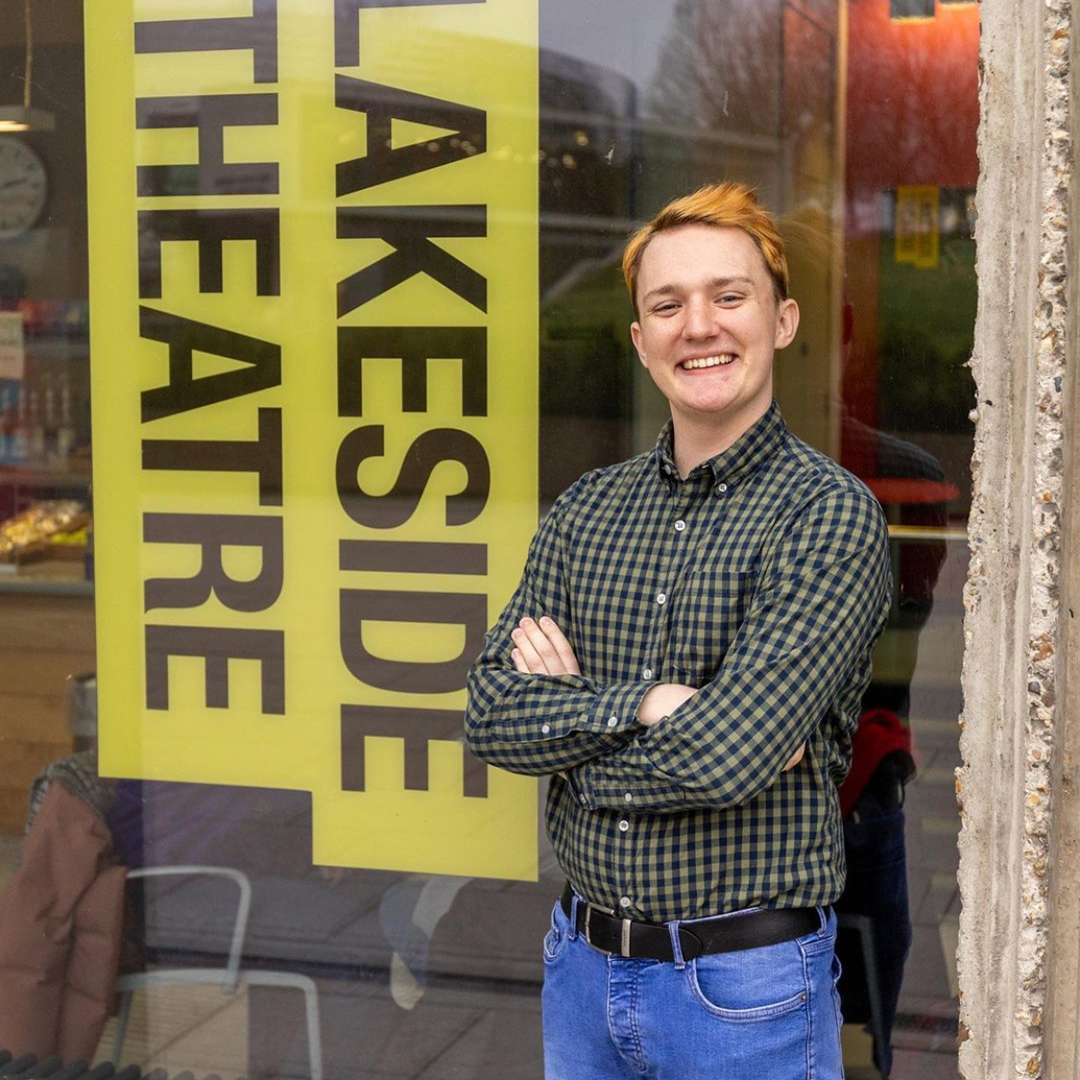
This blog post was originally shared on the University of Essex blog, this is a re-blog.
—
PhD Theatre Studies candidate and Lakeside Theatre Front of House team member, Noah Alfred Pantano, has curated a month’s worth of events to celebrate LGBTQ+ History Month at the Lakeside Theatre this February. In this blog post, he tells us about his motivation for taking on such a curation in the celebration of LGBTQ+ History Month and introduces us to the shows and events which make up the curation.
I consider LGBTQ+ History Month to be of even more vital importance than Pride Month itself. It’s one thing to be proud of where we are, but this month calls on us to pay respects to the people who helped get us here and those we’ve lost on the way.
In curating this month, I chose shows which were grounded in some way to our history, and in turn, suggests a way forward.
LGBTQ+ History Month is as much a reflection of our past as it is a demand for the future of our community. Speaking of community, each show features current students, alumni, and LGBTQ+ people throughout Colchester.
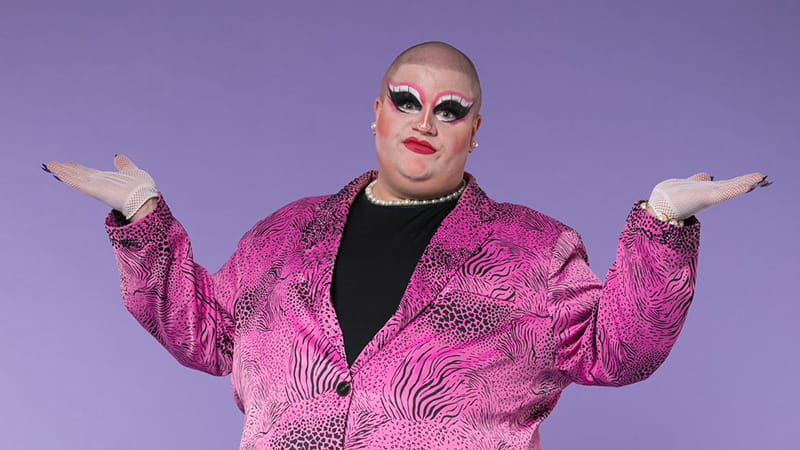
To start the season, we have Shar Cooterie: Well Swung on 10 February. I first saw Shar Cooterie perform her cabaret act back in October as part of Colchester Fringe. I was tasked with reviewing her show. As I described in my review, I did walk out halfway through the show. Because I had to use the bathroom, mind you, but it’s a minute or two I will forever regret.
What makes Shar Cooterie: Well Swung so unique is its reimagining of queer voices in a classic music medium. Taking inspiration from the likes of Post-Modern Jukebox, she takes modern queer songs and warps them into a familiar product of the past. This reinterpretation reminds us of queerness’ place through history. Queer people have always existed.
Shar Cooterie’s show gives a glimpse to a utopian revisionist past where queer voices can be amplified as they are now today. But introspection aside, Shar Cooterie and her accompanist Adam Saiz Abo-Henriksen are standout performers who are guaranteed to make you cackle.
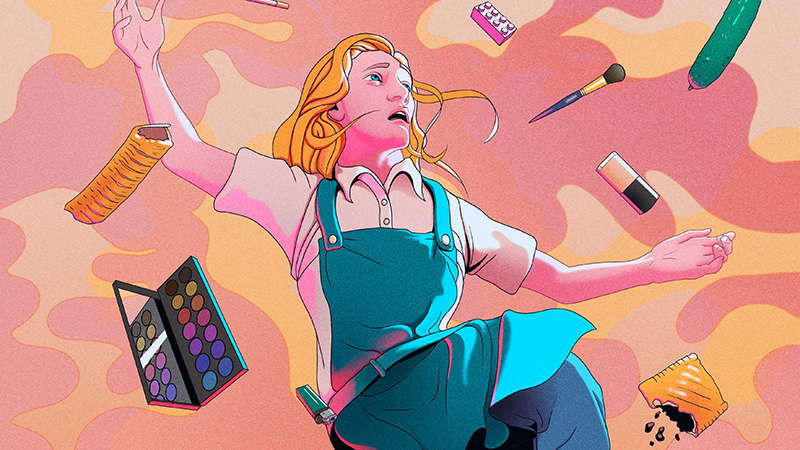
Next, PhD Creative Writing candidate Alice Stephens’s Spit It Out premieres on campus on 23 February. The work first began as Stephens’s MA Dissertation and has evolved to the full production at Lakeside that will soon tour the UK.
Emily is a transgender woman who is still not fully out to her family, workplace, and friends. The play charts her struggles with trans identity and the cyclical nature (and liberation) of coming out.
Stephens’s work is deeply rooted within queer history. For instance, the play directly calls out Thatcher’s Section 28 and reflects upon the ways it continues to haunt queer people.
Contrary to popular belief, coming out is not a one and done thing. It’s a non-linear process that too often goes back in on itself based on situation, historical influence, and the ever-shifting nature of identity. Emily is a mirror to transgender people today boldly combatting the ways trans people are still discriminated and marginalized, and situating how perseverance, friendship, and strength are the bedrock to identity.
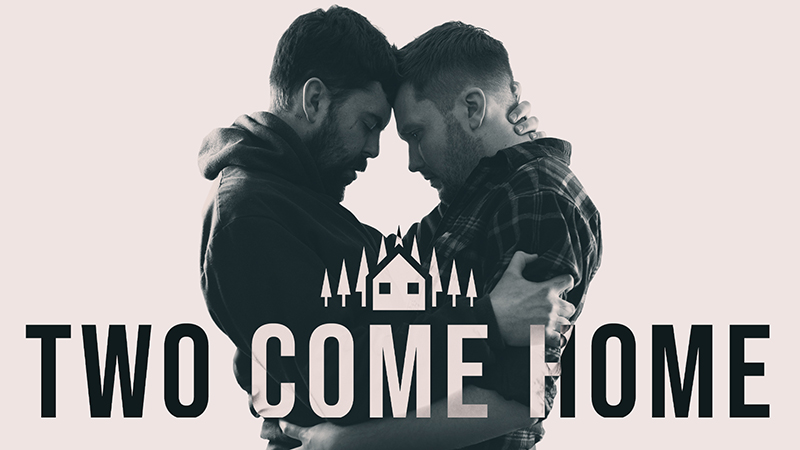
Our season closes out with the world premiere of Joe Eason’s Two Come Home on 1 March. Two Come Home follows Evan, a lonely former drug addict in the Appalachians, as his gay lover, alcoholic mother, and violently abusive father all return home.
Two Come Home takes inspiration from the likes of Tracey Letts and Queer Appalachian romanticism. What makes the show so unique, however, is its ultimate rejection of queer self-loathing.
Eason wrote Two Come Home to challenge the historical errors of queer narratives. Starting from the familiar place of the gay loneliness and rage, Eason has managed to develop a work that is moving and empathetic to its queer subjects. It’s a show I am certain will go far and set a new standard for queer dramas. Furthermore, if the emotional intensity of the work was not enough, the full live band is guaranteed to bring you to tears.
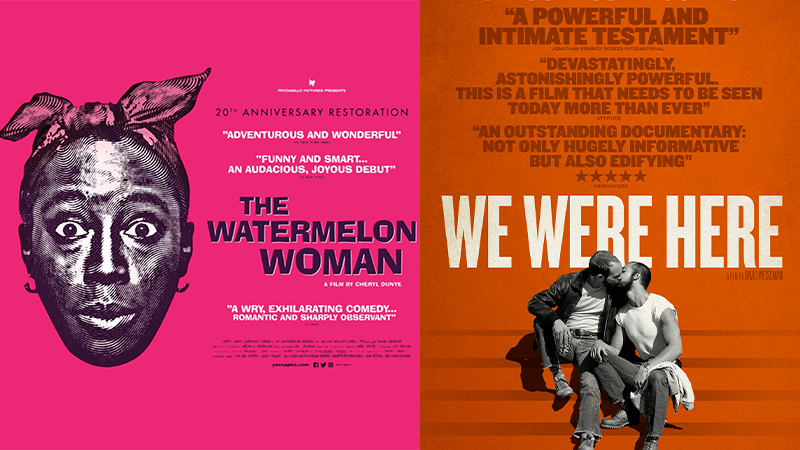
Accompanying these plays, we have two film screenings: We Were Here on 13 February and The Watermelon Woman on 21 February. Both films were chosen in collaboration with Dr Sean Seeger, Senior Lecturer in Literature in the Department of Literature, Film, and Theatre Studies, to support his teaching, but the screenings are open and available to the entire University of Essex community.
We Were Here is a 2011 award-winning documentary about the AIDS Crisis in San Francisco by David Weissman. San Francisco holds a vital place in queer history and served a role in developing gay leather culture. We Were Here looks at the ways the government ignored, vilified, and ultimately, killed gay men during the AIDS Pandemic. But more so, it’s a moving tribute to those lives who were lost and the people who bounded together to save even more.
The Watermelon Woman is a 1996 pseudo-documentary film about filmmaker Cheryl Dunye (playing herself) discovering the history of the title character. After becoming obsessed with old Mammy films (films which feature the stereotype of an upbeat, black, enslaved houseworker), Cheryl embarks to discover who the uncredited “Watermelon Woman” is — only to discover that the actress was a lesbian with a white partner. The film is a brilliant play of genre and form making audiences invested in queer history. While the film is entirely fictional, the stories which it is based on are not. The titular character is an amalgamation of the erasure of queer stories waiting to be rediscovered. Dunye’s own plot in the film reflects on the ways history still affects us today and the parallels the past draws to the future. Both films are not to be missed (but I recommend bringing tissues).
With all these selections, the goal was to show the versatility of queer experiences and the ways history still follows LGBTQ+ people. This season should be educational, entertaining, and impactful. I hope by seeing all these works the viewer will leave viewing LGBTQ+ people differently, better understanding our struggles, our perseverance, and our way forward as a community. This is a season about hope.
—